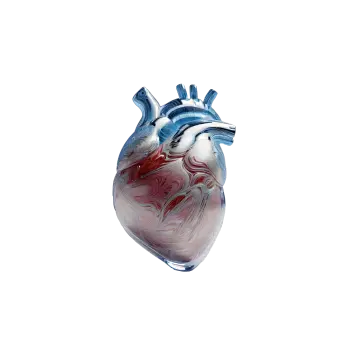Common Symptoms of AV Block
The symptoms that occur depend on how severe the block is. Many people have no symptoms at all, especially in mild cases, such as AV block I. However, in cases where the blockage is more pronounced, the heart can beat so slowly that it is clearly noticeable.
Common symptoms:- Dizziness or feeling unsteady
- Fatigue and decreased energy
- Fainting or near-fainting
- Slow pulse
- Shortness of breath on exertion
- Heart palpitations or irregular heartbeat
- Chest pain in some cases
Sudden loss of consciousness or fainting may indicate a serious AV block, such as AV block III, and requires emergency care.
What causes AV block?
There are several different factors that can cause AV block:
- Aging – this is the most common cause and is due to natural wear and tear in the conduction system
- Previous heart attack – this occurs especially in cases of damage near the AV node
- Inflammation of the heart (e.g. in myocarditis or Lyme disease)
- Medications – some examples are beta blockers, digoxin, calcium channel blockers
- Congenital heart defects – this is rarer but does occur
- Disorders such as thyroid disorders or electrolyte disorders
3 different degrees of AV block
There are different types of AV block, these are divided into three degrees:
- AV block I: In the first degree, there is a delay in the signal but all impulses pass through. Usually without any symptoms.
- AV block II: In the second degree, certain signals are blocked. This can cause dizziness or a feeling of fainting.
- AV block III (total block): In the third degree, no signal passes from the atrium to the ventricle. Then the heartbeat is controlled by a slow reserve rhythm – often symptomatic and requires treatment.
Treatment for AV block
The treatment for AV block depends on the degree of block and how affected a person is. In AV block I, treatment is rarely required. In symptomatic AV block II or III, a pacemaker is often necessary to regulate the heart rhythm – it is a device that is surgically implanted under the skin to help the heart beat at the right rate.
When should you seek medical attention?
You should contact healthcare if you experience dizziness, fainting or fatigue without a clear cause. If you have a slow or irregular pulse or are taking heart medication and notice that your pulse has become slow.
In case of fainting, loss of consciousness or sudden heart problems – call 112 immediately.























